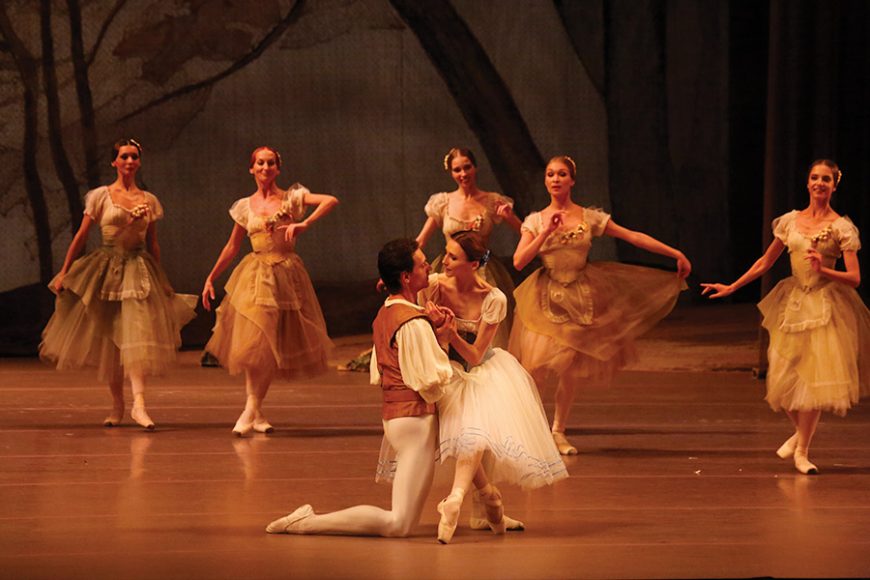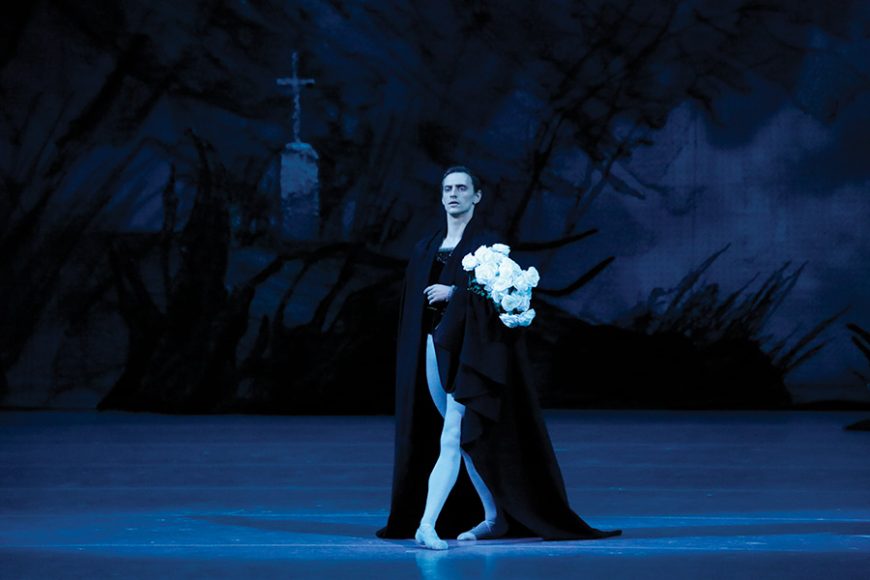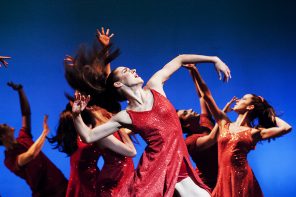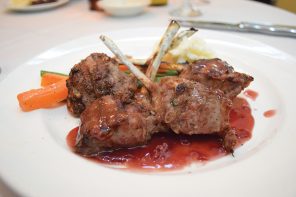We’ve all heard stories about those who have the love of – but not the talent for – an art or sport.
Zelda Fitzgerald’s attempts to become a ballerina at age 27, an obsession that precipitated madness, comes to mind, as does heiress Florence Foster Jenkins’ determination to become an opera singer — despite an inability to sing — a wee obstacle dramatized by Meryl Streep in the movie named for the “singer.”
But what about those with the ability but not the grand passion for what they do? You think of John McEnroe, the former world No. 1, who once said he never had the love for tennis that Jimmy Connors did, or Andre Agassi, another former No. 1, who went McEnroe one better and said he hated the game that he graced so memorably.
Should we add the conflicted Sergei Polunin to the latter category? In 2010 at age 19, he became The Royal Ballet’s youngest principal dancer ever. Two years later, he pirouetted away from the company, amid complaints of strictures and tabloid reports of partying, drinking and drug-taking by the reigning “bad boy of ballet,” the once and future heir to Rudolf Nureyev.
“I hated the fact that I had to dance, when you have to do it. It’s like, ‘Why do I have to do anything? Because you’re good at it?”’ he asks in the fascinating 2016 documentary “Dancer.” It’s an existential question that speaks to the roles that history, geography, biology and, perhaps especially, money (or rather the lack thereof) have played in his life and in any life.
Fortunately for balletomanes, he has recently concluded that there is a point in continuing a career that combines superb technical skills with physical beauty, a charismatic stage presence, real musicality, a soulful acting style and an almost animalistic hunger for experience that suggests not only Nureyev and Mikhail Baryshnikov but actors Mickey Rourke and Marlon Brando — two of his heroes.
Valentino Zucchetti, a first soloist of The Royal Ballet and a former classmate of Sergei’s, describes him as a “graceful beast,” for his mix of aggression and control.
Others have noticed that dual nature as well.
“He seems shy during rehearsals,” says Svetlana Zakharova. “Onstage, everything’s different. He completely changes and opens up emotionally. And that brings the story to life with totally fresh feelings and emotions.”
The Bolshoi Ballet star, known as “the tsarina of dance,” was undeterred by her fellow Ukrainian’s reputation and has taken him on as an occasional partner. The result has been pure magic, as in a performance of “Giselle” simulcast recently into City Center 15: Cinema de Lux in White Plains and theaters around the world that called to mind Baryshnikov and Gelsey Kirkland, Natalia Makarova and Anthony Dowell and other great pairings in this quintessential Romantic ballet.
Like Baryshnikov, Sergei has made the leap from stage to screens big and small — going viral as a kind of birdman beating against a gilded cage (actually a stylized tree house in Maui) for David LaChapelle’s “Take Me to Church” video (23 million views and counting) and scoring small parts in the recent “Murder on the Orient Express” and “Red Sparrow.” (In “The White Crow,” Ralph Fiennes’ upcoming movie about Nureyev’s 1961 defection to the West, Polunin plays Yuri Soloviev, a contemporary who was hounded by the Soviets after Nureyev’s defection and committed suicide in 1977.)
But do such opportunities slake such a questing spirit?
Although Sergei has said he is inspired by movies, he has observed, “Now I want to become an artist, rather than one thing, like a dancer or a movie star or a choreographer.”
‘Harry Potter world’
Sigmund Freud said “biology is destiny.” But maybe history and geography are destiny, too. Sergei was born in Kherson, a port city on the Black Sea in southern Ukraine in the waning days of the Soviet Union.
“Everybody was poor, you know, nobody had money and when everybody’s poor, you don’t feel the difference,” Sergei says in the documentary. “And when you’re a kid especially, you’re just having fun. You don’t know any troubles.”
His father, Vladimir, with whom he has a warm relationship as demonstrated in “Dancer,” was nonetheless often away, earning money to support the family. He worked as a gardener in Portugal while one of Sergei’s grandmothers worked in Greece as an elder caregiver. That left young “Seryozha,” a budding gymnast, in the company of his mother, Galina, with whom he has a more complex relationship. Determined that her son not be condemned to the kind of dead-end life she saw all around her, Galina signed him up for ballet before she really understood what a ballet career entailed, moving the two of them to Kiev so that he could study at the State Choreographic Institute.
“That’s when I guess fun was over,” he says in “Dancer.”
Four years later, they applied to the highly competitive Royal Ballet School in Great Britain. It was a long shot but Sergei’s natural talent and plasticity gained him admittance and sponsorship by the Rudolf Nureyev Foundation. When her visa expired, Galina decided it was best to comply with the law and not compromise her son’s chances for success. Leaving him, she says in “Dancer,” was “my ultimate sacrifice.” He was just 13 and alone in a foreign country in which he did not speak the native language.
“London was very different than Ukraine,” he recalls in the documentary. “Everything was beautiful, magical. I felt like I was in Harry Potter world.”
Sergei persevered, taking twice as many classes, all in the hope of improving the lives of the family that remained at the center of his. He rose steadily — earning the gold medal at the prestigious Prix de Lausanne in 2006 and the rank of a first soloist in 2009. A year later, he was the youngest principal in The Royal Ballet’s history. However, he also discovered that ballet — an exacting mistress — is rarely a means to end but rather an end in itself. The dancer must dance. He can’t skip a day of class and hope his body, screaming in pain on the best of days, will bend to his will.
“You feel like you’re a prisoner to your body,” he says in “Dancer.”
Nor can success in any profession heal a broken family. Sergei’s parents had divorced. He blamed his mother — and, perhaps, himself. He partied with friends — smoking, drinking to the point of passing out, doing cocaine, performing high, garnering the wrong kind of headlines in tabloid-crazed London. He endured the pain of tattoos, including one that looks like claw marks on his left breast. (“Why do you make yourself look like a freak?” his mother wonders in one of the documentary’s outtakes. “I thought you stopped being cruel to yourself.” He wished himself a career-ending injury.)
On Jan. 24, 2012, Sergei resigned from The Royal Ballet immediately. “The artist in me was dying,” the BBC News reported him saying.
Going to ‘Church’
But what to do? He has long been influenced by American culture — among his many tattoos is the phrase “Dirty Money,” after the P. Diddy music group — but he says no American company would take him. So, he went where he did not want to go — to Russia, perhaps the pinnacle of ballet, where audiences do not give their hearts easily. Russia meant starting over, appearing on and winning “Big Ballet,” a kind of “Dancing With the Stars,” Bolshoi Ballet-style. He joined former dancer and choreographer Igor Zelensky, who became a father figure to him, at The Stanislavsky and Nemirovich-Danchenko Music Theatre in Moscow. He planned “Take Me to Church” — set to Hozier’s bluesy ballad — as a swan song. The sexy, haunting number, which makes superb use of Sergei’s off-balance turns and gift for explosiveness propelled out of stillness — has transfixed viewers who wouldn’t know a pas de deux from a faux pas. It gave him the strength to dance an evening of Jerome Robbins’ Chopin works at The Stanislavsky that included “Other Dances,” a pas de deux whose male role was originally created for Baryshnikov and Peter Martins. It was the first time his parents and grandmother saw him perform professionally.
Afterward, they came backstage. In “Dancer,” it is both a wonderful and terrible moment in which you can’t help but think of all the years in which they weren’t together as a family. But then, we wouldn’t have had the miracle that is Sergei, would we?
So what’s it to be? A career cut short and a lifetime of might’ve beens? Or a turn in the road in which dance remains a springboard for opportunities that feed an artistic hunger and restlessness, as they did for Nureyev and Baryshnikov?
A hint may be found in some of the other comments he makes in “Dancer”:
“When I dance I don’t think how I dance. It’s just who I am,” he says. “When you take off and hover in the air for a couple of seconds — you know, your body let’s you do that — it’s worth dancing for. When you’re dancing and jumping in the air, this is who you are.”






